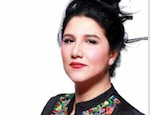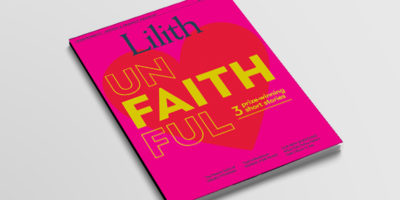
The Persian Singer
Growing up in the 1970s in Queens, New York, as the daughter of Jewish immigrants from Iran, I was unable to articulate how I felt different from the other kids in my public elementary school: I could tell my teacher, Mrs. Rice, loved me, but I had never been called “bubbeleh” before. There were plenty of Jewish kids, but none whose families, like mine, ate rice during Passover.
One afternoon, in 1979, after the Iranian Revolution, I felt the sting of my differentness when a boy turned to me and hissed, “You, Iranian!”
The upheaval of that revolution scattered tens of thousands of Iranian Jews away from their country, most to the United States or Israel.
While I felt out of place in Queens, across the globe, in Israel, Maureen Neheder was feeling different from those around her too. Just two years old when the coup hit Iran, her family had moved from Iran to Israel, where her father soon abandoned her mother with two small children… While Maureen was piecing together her identity and musical heritage, I was growing aspects of my American, Persian, Jewish, and feminist identities in spurts: I achieved oral fluency in Farsi but cannot read and write the language; I learned to read and chant Hebrew tefillot and leyn Torah, but do not speak Hebrew; I learned Persian cuisine, dance, music, poetry, and cinema; I graduated from a women’s college and earned a law degree. And then Maureen Nehedar came into my life.
She traveled from Israel recently to perform at my synagogue. She is a critical success in Israel, known for her voice, compositions, arrangements and scholarship, with her albums “Gandom” and “Asleep in the Bosom of Childhood” glowingly reviewed. Nehedar performed for hundreds of men, women and children at a concert, then again for a large group of elderly Persian Jewish immigrants, and again at a talk she gave in my home. During each performance, audiences were transfixed. Many attendees wept silently as they joined her in singing once-familiar songs, their memories of Iran flooding back.
Perhaps it is not a surprise that her music evokes visceral emotions in those displaced by the Iranian Revolution. For me, having never even been to Iran, her performance was less about memories than about current possibilities: Maureen Nehedar affirms that the melding of the Persian, Jewish, American and feminist identities I have aspired to is possible—and beautiful.


